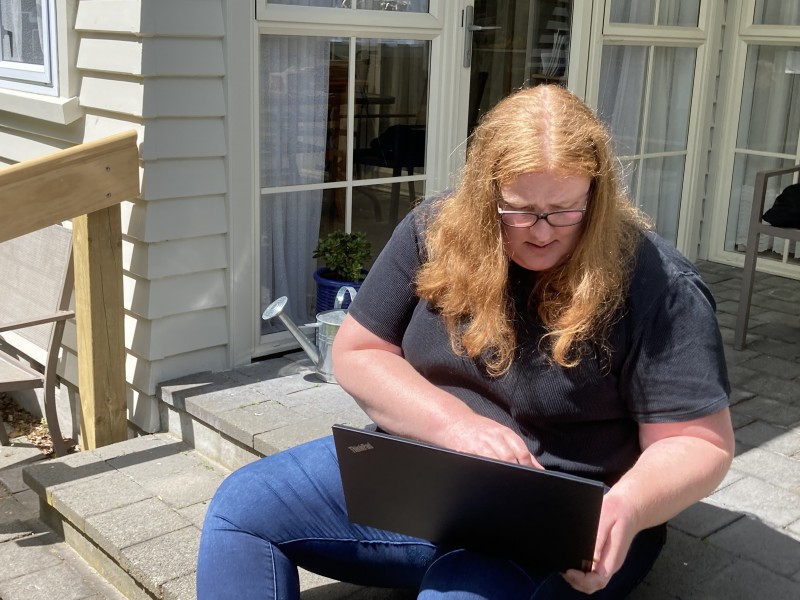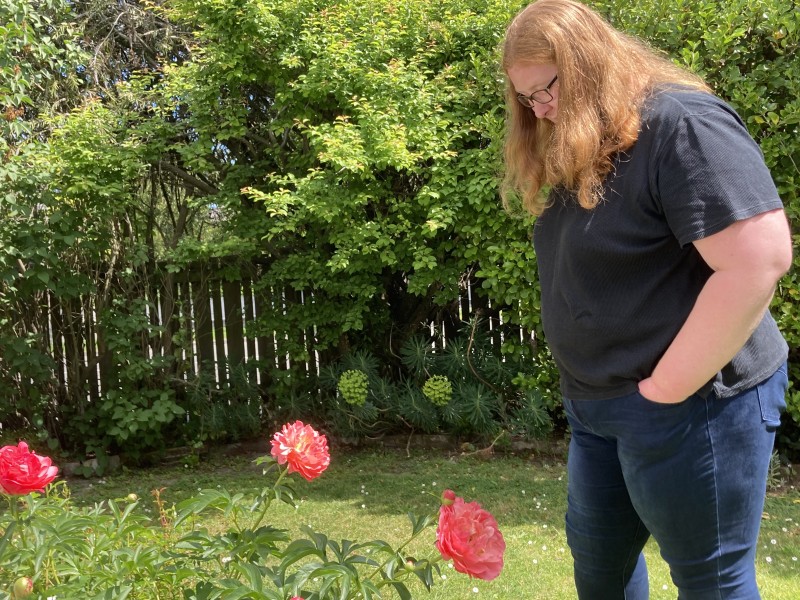By all accounts, she is a success story. She is the only Christchurch comedian to ever win the RAW comedy competition, New Zealand’s most prestigious amateur comedy award. She won the director's choice at the International Comedy festival in 2021 with her first solo hour. If you read her achievements on a piece of paper, you’d think of a blessed life, bouncing from award to award, roses littered at her feet.
But this isn’t the case. Jadwiga Green battled her entire life to be here. A trans woman, she knew from day one that she was a woman despite being assigned male at birth.
“I was younger than 10. I don’t remember what age. I would have recurring dreams of praying to God that I would wake up and people would know me as Jadwiga, as female. Utterly joyful, surreal dreams.”
Green was born in Dunedin in 1991 to a Polish family. Enrolling in St Marys, a Catholic primary school, she found herself quickly enraptured with religion.
“I really liked the bible. I remember being obsessed with this one book that had this graphic depiction of the crucifixion. It was brutal, so gory. I get to school at five, I had no conception of death and morality and I see that, so displayed, inescapable. It shook me.”
Growing up, she loved performing and writing. She played parts in their Easter plays, first as Jesus Christ and the following year as Pontius Pilate.
“I found it just exhilarating and fun playing make-believe and getting to explore stories and see them come to life. I was so proud of myself. I thought, oh, I must be really special.”
But Green found herself in a crisis of faith.
“The things that made me practically reconsider my faith was thinking, why did God put the soul of a female into the body of a male, the soul of a girl into the body of a boy? God is supposed to never make mistakes. So that kind of been a mistake. Why was I like this?”
Growing up with this identity crisis was difficult for Green. She describes the high school experience at Mount Aspiring College as mostly survival, just trying to move through without rocking the boat. She attended the University of Otago, studying theatre studies and English. Her issues with gender continued, despite the new situation she found herself in.
“At university I met people who were like me. But I was still living a half truth, because I thought what I wanted was impossible for me to live authentically. It was crushing.”
It reached a boiling point.
“I made up my mind that I was going to commit suicide after graduation. It sounds bleak and I don’t say lightly. It’s a difficult thing to say. I just thought who I really am, it’s too difficult to live that way.
“I would do one last thing that had any value or worth, that I could give to the people who knew me. That was graduating, doing well with my story. I would present this image of a troubled young man who did what he could to pave a meaningful future for him. So when I died people wouldn’t think I was just a waste of space.”
But graduation came, and Green made the biggest choice of her life.
“I graduated, and that moment came for me to decide to end my life. I thought, well, if I’m that downtrodden and in that dark of a place, what do I have to lose? I might as well come out and see if it’s possible or not.
“And so I came out. And here I am. It worked.” She laughs.


